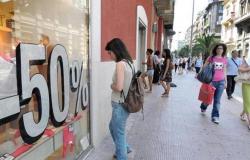European airlines are starting to increase ticket prices — for domestic, international and intercontinental routes — to cover part of the costs of complying with the European plan to reduce carbon dioxide emissions. From 1 January 2025 Lufthansa will introduce an environmental surcharge. The increase — from 1 to 72 euros per ticket — will apply to all flights marketed and operated by the Lufthansa group (which also includes Swiss, Austrian Airlines, Brussels Airlines, Air Dolomiti, Eurowings) departing from the 27 countries of the European Union, from the UK, Norway and Switzerland. In the next few days Air France-KLM and IAG (British Airways, Iberia) will also do the same, according to what the Courier from company sources.
The announcement
“The surcharge is intended to cover part of the constantly increasing additional costs due to regulatory environmental requirements,” the airline comments in a statement. “The climate protection requirements in the EU require billions of investments and Lufthansa cannot bear the costs alone.” And the surcharge will be applied to all tickets issued starting from June 26th for departures from January 1st 2025. Until now the European giant of the skies had offered the voluntary option (“Green fares”) which allowed those who wanted to pay something more for environmental protection. But only 4% spend more.
The moves of the sector
However, Lufthansa’s initiative will not be the first and only one. Other European airlines will follow, according to experts, because they are unable to absorb the full cost incurred. The European Union has established that by 2050 the area will have to reach net zero emissions, eliminating its current greenhouse gas emissions, passing through an intermediate stage in 2030 with -55%. Brussels allows the possibility of offsetting emissions by planting trees or mechanically reabsorbing the CO2 emitted.
European standards
The Community package “ReFuelEu” establishes that from 2025 all flights departing from an airport in the European Union will be obliged to use a minimum quota of sustainable aviation fuel (Saf): 2% in two years, 6% in 2030 , 20% in 2035, 34% in 2040, 42% in 2045 and 70% in 2050. Within this mandatory quota, however, the EU has decided to also include the presence of synthetic fuels (e-kerosene): 1.2% in 2030, 5% in 2035 and 35% in 2050. SAF is capable of cutting emissions by 60-80%.
Extra costs
But to reach the goal, the continent’s carriers will have to foresee more than 800 billion euros in additional costs, thus bringing the overall expenditure for the energy transition of the sector to almost 1,900 billion euros. For this reason, net of public support interventions (national or EU), as explained by the Courier more than a year ago, everything will be reflected in tickets: passengers – according to estimates – could have to pay an average of 21 euros more per flight until 2050 just for this item. As regards Italy, in 2030 the increase in fares on national and continental routes will be around 35 euros.
Analyzes
According to Bernstein analysts, the environmental cost for the purchase of ETS by the main six intra-EU flight companies will go from 500 million euros in 2019 to around 5 billion in 2027. On the intercontinental side, however, the Nlr dossier and Seo-Amsterdam Economics explains that in 2030, for example, those who take a Hamburg-Bangkok flight will pay from 40 to 59 euros more if they pass through an EU airport, while those who make an intermediate stop in a Middle Eastern hub will see the price rise by 12 EUR. This is because the surcharge does not apply to flights departing outside the European Union. Five years later the gap will widen, going from +78/+120 euros in the community area, against +19 euros for those who book with Turkish Airlines stopping in Istanbul.





